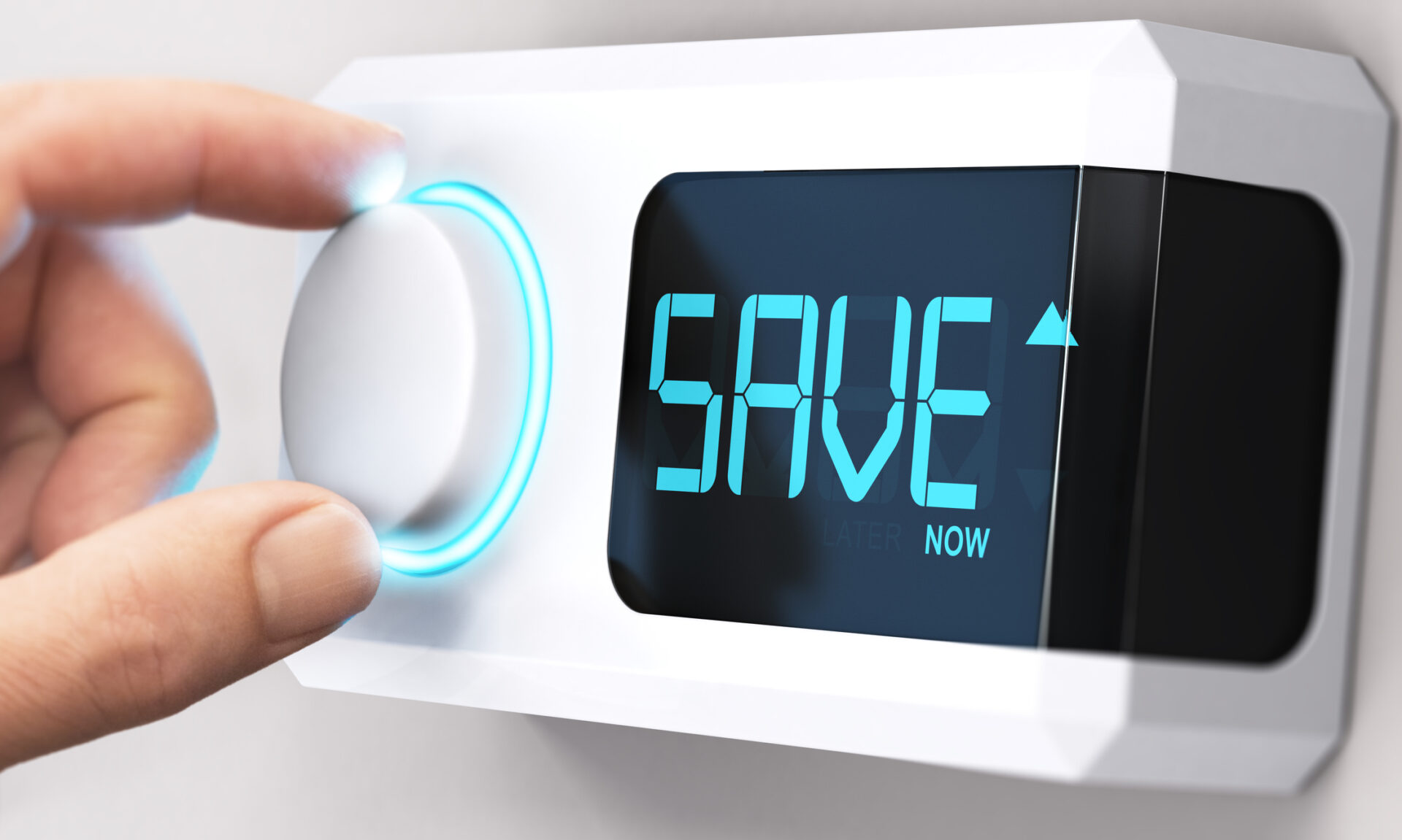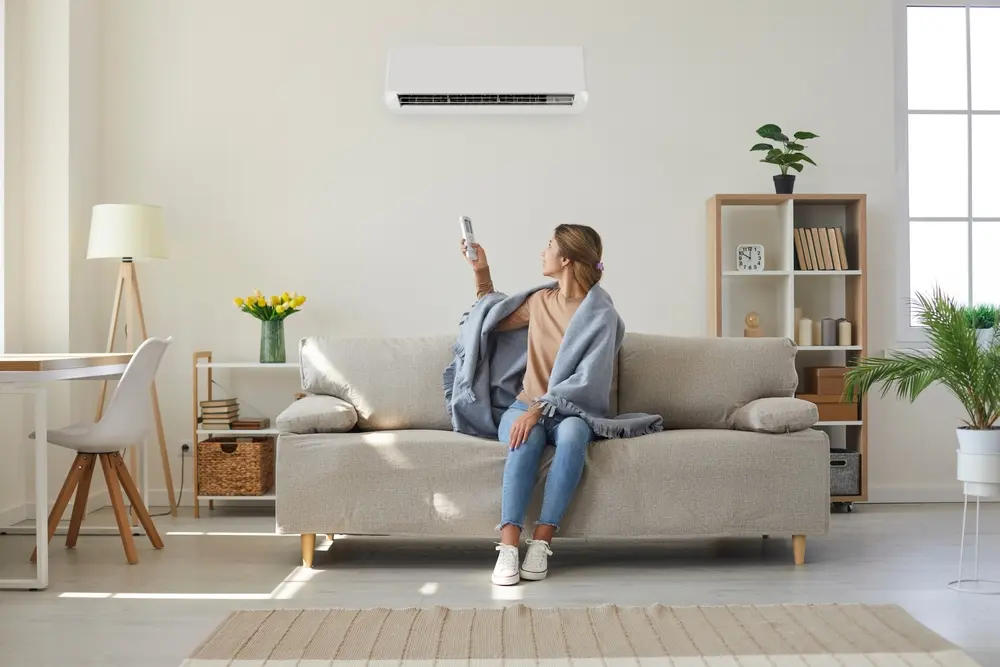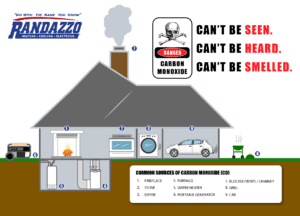HVAC Rebates, Tax Credits & Energy-Efficiency Ratings for Michigan Homes

We have good news if you’ve wanted to invest in more energy-efficient home systems but have put them off due to rising prices! Help is available for Metro Detroit, Birmingham, Farmington Hills, and Northville, MI, in the form of tax credits and rebates. The Inflation Reduction Act allows Southeast Michigan homeowners to upgrade their heating, cooling, and electrical systems and save money.
Talk to one of our HVAC specialists today to learn more about reducing your energy bills and saving potentially thousands of dollars on purchasing qualified home appliances.
Contact us online or call 586-336-1111 to learn more about your neighborhood’s Inflation Reduction Act credits and tax rebates.
What Is the Inflation Reduction Act?
The IRA was enacted to tackle climate change and help the U.S. meet its sustainability goals by 2030. It allocates nearly $400 billion in clean energy technologies and resources to improve energy efficiency and cut greenhouse gas emissions by over 40%. Experts say the bill will create up to 1.5 million jobs countrywide, with over 165,000 here in Michigan.
Sample rebate opportunities for a two-person Michigan home include:
- Heating and cooling: $2,000 toward a heat pump
- Water heaters: $1,750 for gas or electric heat pump water heaters, gas or propane water heater, hot water boiler, central air, or biomass boiler.
- Electric panels: $4,000
- Electrical wiring: $2,500
- Insulation and weatherization: $1,600
- Home energy audits: $150
Low-income Michigan households qualify for further rebates, and many homeowners also qualify for tax credits on items like EV chargers, solar battery storage installation, and electrical panels.
What Rebates Are Available to Michigan Residents?
Southeast Michigan homeowners can access several financial incentives to lower their energy expenses.
- Rebates from 50% to 100% of the purchase and installation costs for energy-efficient appliances, including heat pumps, water heaters, dryers, and more.
- Rebates for single- and multi-family home improvements and repairs that increase energy efficiency.
- Tax credit of 30% for solar panel installation, battery storage systems, and heating and cooling equipment upgrades.
- 30% tax credit for home improvements that reduce or eliminate energy leakage.
Credits are also available for community solar projects and electrical and clean energy improvements at affordable housing units.
Aside from federal tax credits, Michigan residents can take advantage of the state’s Energy Smart program, which offers rebates for the purchase of numerous Energy Star® appliances, including:
- High-efficiency heat pump water heaters
- Electric clothes dryers
- Programmable thermostats
- Dehumidifiers
- And more
The Michigan Saves program offers homeowners a convenient way to finance energy-saving improvements. The state’s utility companies also provide various utility rebate programs; contact your provider to learn more.
What Is SEER & Why Is It Important?
SEER (Seasonal Energy Efficiency Ratio) measures the efficiency of AC and heat pump systems over a typical cooling season. The higher its SEER rating, the more efficient the system is.
Michigan SEER standards are essential for several reasons:
- Energy efficiency: SEER helps consumers compare the energy efficiency of different cooling systems to reduce their equipment’s environmental impact.
- Cost savings: High SEER-rated systems can provide significant energy cost savings over a system’s lifetime compared to lower SEER-rated systems.
- Environmental impact: AC and heat pump systems use substantial energy contributing to greenhouse gas emissions. Systems with higher SEER ratings reduce carbon footprints.
- Regulatory compliance: Compliance with local, state, and federal SEER requirements is mandatory in many jurisdictions.
SEER ratings play a significant role in obtaining rebates for air conditioning units or heat pumps, with most programs setting a minimum SEER requirement for eligibility. For instance, you might qualify for a rebate for systems with a SEER rating of 16 or higher. These requirements ensure that the rebates promote the installation of more energy-efficient equipment.
What Changes Can I Make To Get the Rebate?
Michigan HVAC tax rebates for residential customers cover numerous improvements and upgrades, including:
- The purchase and installation of high-efficiency central air conditioners and other qualified gas, electric, and propane HVAC systems.
- ENERGY STAR® windows, doors, and skylight installation.
Remember that while DIY projects qualify for some incentives, others require you to work with a professional installer.
Why Choose Randazzo Heating & Cooling?
Since 1988, Randazzo Heating, Cooling, and Electrical has delivered high-quality HVAC and electrical services to Southeast Michigan homeowners, ensuring lasting home comfort. We are Michigan’s largest award-winning Lennox Premier dealer and offer only the finest installation and repair services.
Request Service

Why Choose Randazzo?
We’re the Name You Know
- Licensed & insured
- Service all brands
- Free estimates on replacement quotes & service calls
- Background-checked technicians
- Financing options
- Lennox Premier Dealer
- Committed to excellence



